How to choose the right conservatory — experts reveal the 10 key decisions you’ll need to make
Choose the right glazed addition for your home with these top tips
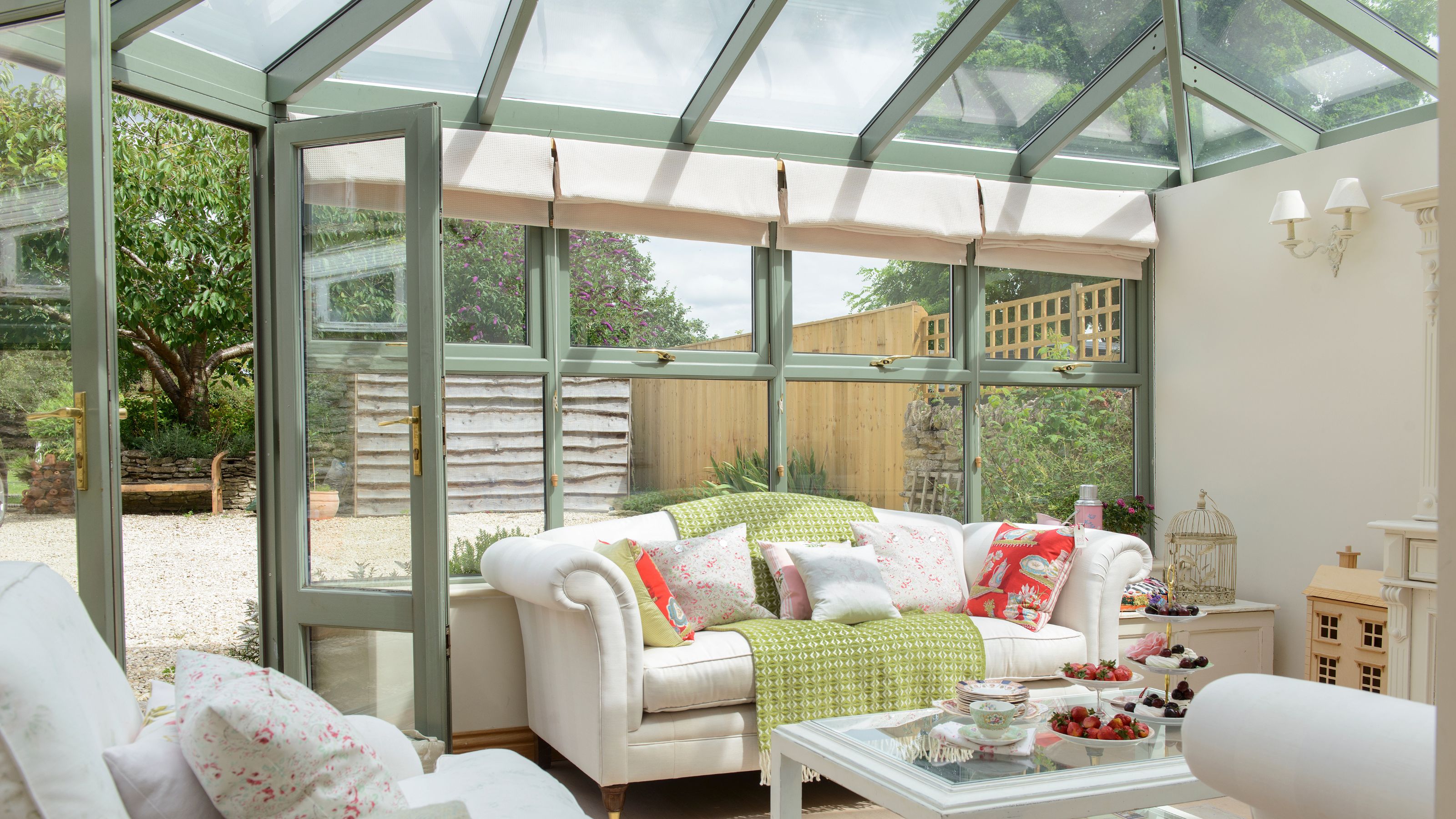

Conservatories come in all different shapes and sizes, so how do you choose the right conservatory for your home and your lifestyle?
There's lots to consider when planning a conservatory, from the style you choose, frame material and glazing options, to the best type of roof for your addition and how you will heat the new space.
While you might have plenty of conservatory ideas already, make sure you cover all these bases to make sure you make the right choice for your home.
1. Determine what you want to use your conservatory for
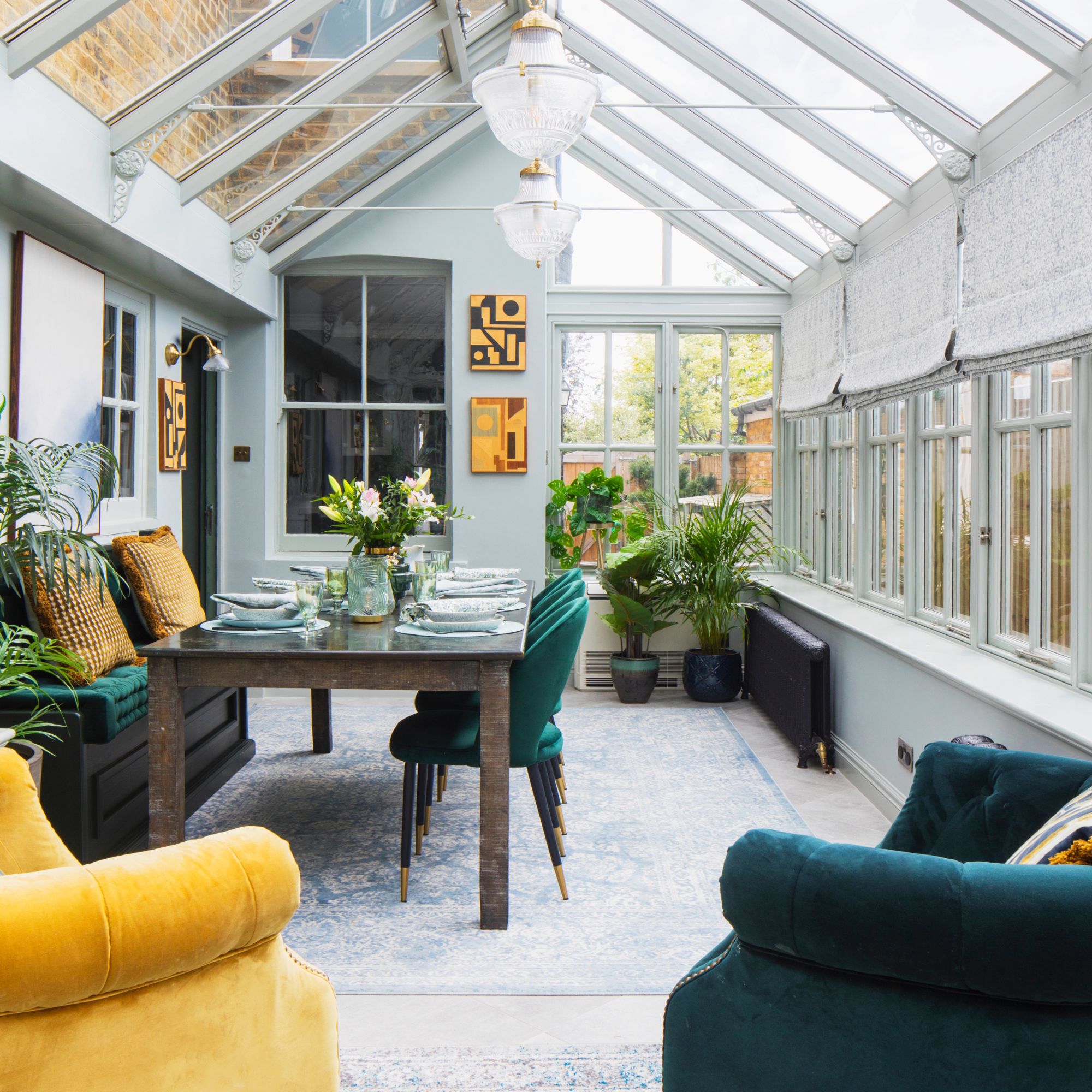
Your first thought should be around what you want the conservatory to be. Do you want this to be a calm, serene space where you can relax and enjoy views of your garden? Or perhaps you want to create a wow-factor conservatory kitchen, or incorporate it into an open plan living space.
'Consider the intended use so that it informs the layout and design features, says Barney Bell from David Salisbury . 'Thoughtful planning guarantees a beautiful, functional addition to your home, something an experienced designer will be able to work with you to achieve.'
Usually, conservatories are separated from the rest of the home by external doors, but if you want more of an open plan look, then that may dictate the materials or roof design you choose.
2. How big a conservatory do you need?
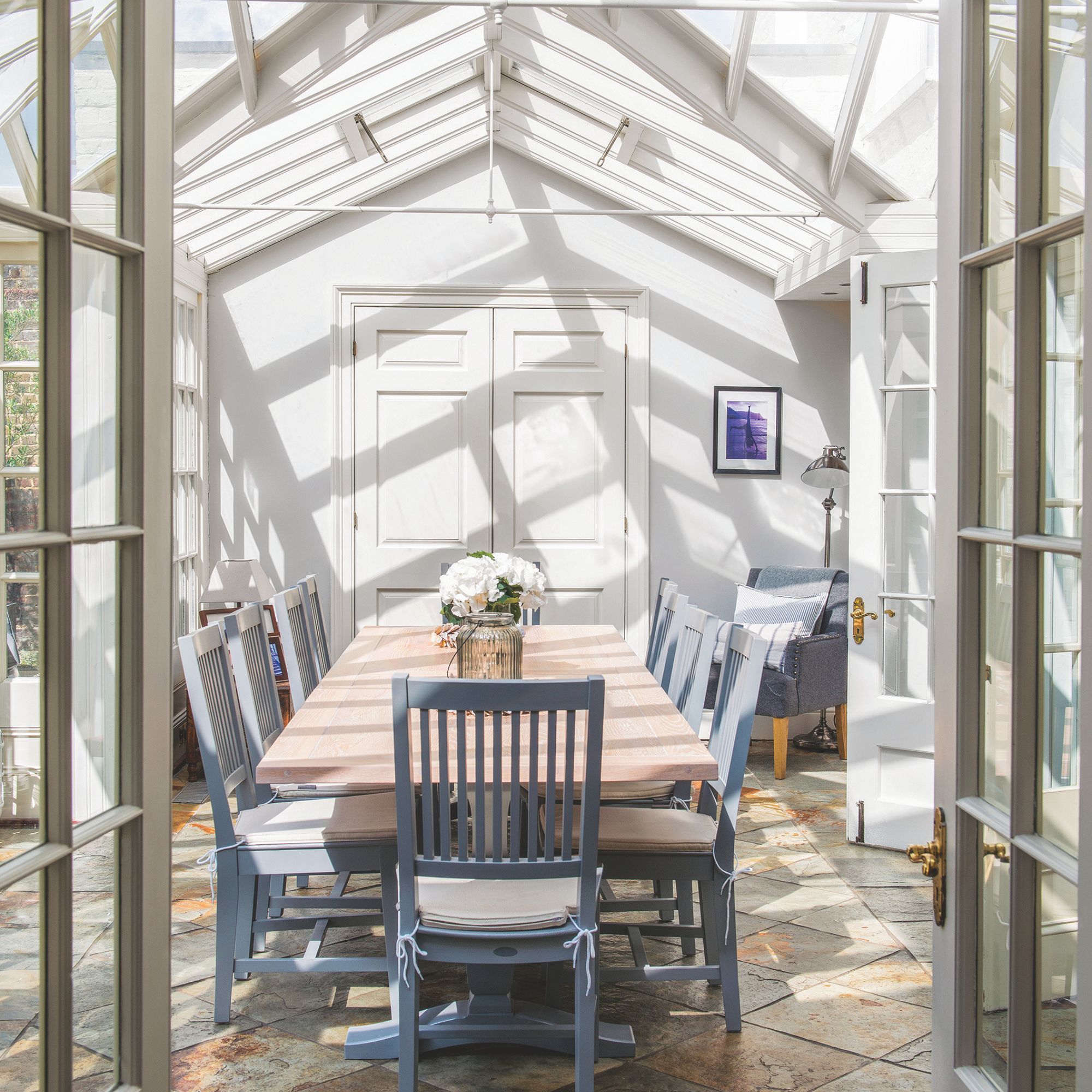
The size of your conservatory will influence more than how the new space will function, it will have an understandable impact on costs too. Speaking to a reputable conservatory company can help you get a sense of how far your budget will stretch, and how much space you actually need to get the impact you want.
Get the Ideal Home Newsletter
Sign up to our newsletter for style and decor inspiration, house makeovers, project advice and more.
Alice Hickling from Vale Garden Houses says: 'When determining the size of a conservatory, the first priority should be to consider how it will blend with the existing building. Ensuring the extension is proportionate and complements the rest of the home helps maintain aesthetic harmony and architectural balance.
'You should then consider the conservatory's intended purpose and the desired flow of the space. Whether you aim to create a bright lounge, a dining area, or a peaceful garden retreat, the conservatory's size should allow for comfort and easy movement.
It's essential that the new addition doesn't overwhelm the original structure but enhances it, creating a seamless extension that feels both functional and natural.'
Barney Bell adds: 'For a small seating area or garden room, a compact conservatory of around 3m x 3m may be sufficient. If it's intended as a dining or living space, a 4m x 4m or larger design provides greater flexibility.
'Larger bespoke conservatories, often exceeding 5m x 5m, can create impressive open plan living areas, blending indoor and outdoor spaces seamlessly.'
Remember too that the larger conservatory you choose, the more likely you could find you addition falls outside the scope of Permitted Development, which means you may need planning permission for your conservatory.
Similarly, while smaller conservatories may be exempt from Building Regulations, this isn't the case with larger scale builds.
3. What style of conservatory do you want?
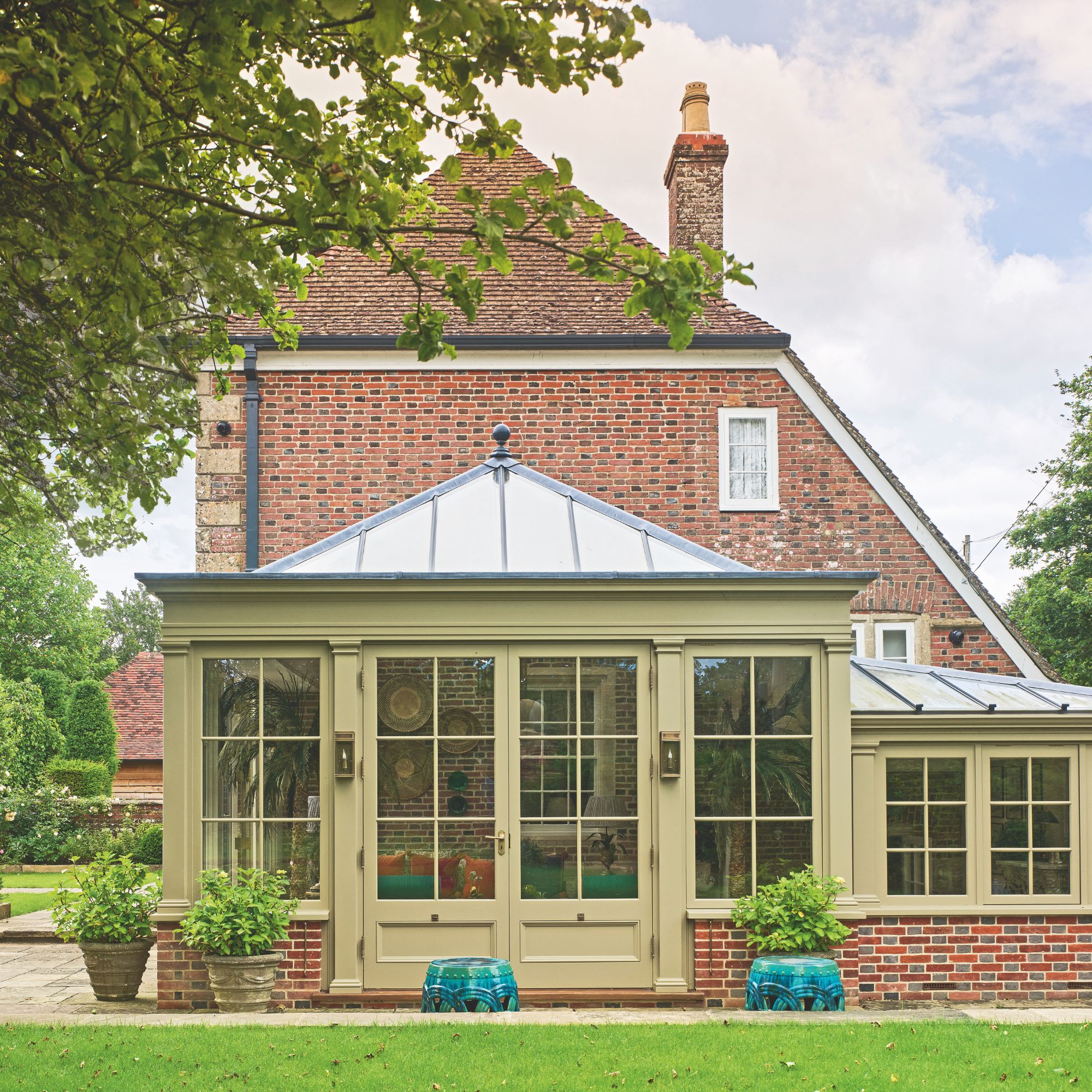
Have a think about the style of conservatory that would best suit your home.
More traditional styles of conservatory are still popular, and would be a great addition to a period home. A lean-to design, which has a single pitch roof, can be a cost effective option for smaller additions, while Victorian and Edwardian designs are better for larger conservatories.
If you want something a bit more substantial than a conservatory, then it's worth considering an orangery instead. When it comes to the difference between an orangery and a conservatory, an orangery tends to have more in terms of walls, and a solid flat roof perimeter with a roof lantern in the centre.
You could also opt for a more modern glass addition to your home, which may be more bespoke, but could provide the ideal contrast to a period home, or complement an equally modern home.
4. Choose your build route

A conservatory is a major financial investment and the cost will vary depending on the construction materials, whether it is from a standard range or a bespoke build, and the extent that the building work is managed.
Kit or DIY conservatories are less expensive to buy, but the labour costs of preparing the site and carrying out the installation work should be factored into the equation. Also, if you are not a really skilled DIYer, this could be a false economy as you may need to pay someone to rectify any mistakes.
Unless you are prepared to oversee the building work, use a specialist conservatory company that will manage all aspects of the project, including dealing with any planning permissions needed or building regulations.
At the top end, companies that offer a bespoke service will design the conservatory to suit individual requirements and oversee the building work through to completion.
5. Which conservatory frame material should you pick?

You should carefully consider which frame material you want, as it will impact the look, cost, durability and maintenance of your conservatory.
At the cheaper end of the scale, you can choose uPVC, which has a shelf life of about 20 years and comes in a limited range of colours. Aluminium is slightly more expensive, but is extremely durable, needs very little maintenance and is available is loads of different colours. The strength of aluminium can also mean you can have thinner frames and more glass to make the most of garden views.
If you want a really characterful look that feels in-keeping with a period property, then timber is a good choice. It looks great, but is pricier than other materials, and may need more in terms of maintenance to keep it looking its best.
6. Consider what kind of roof you want
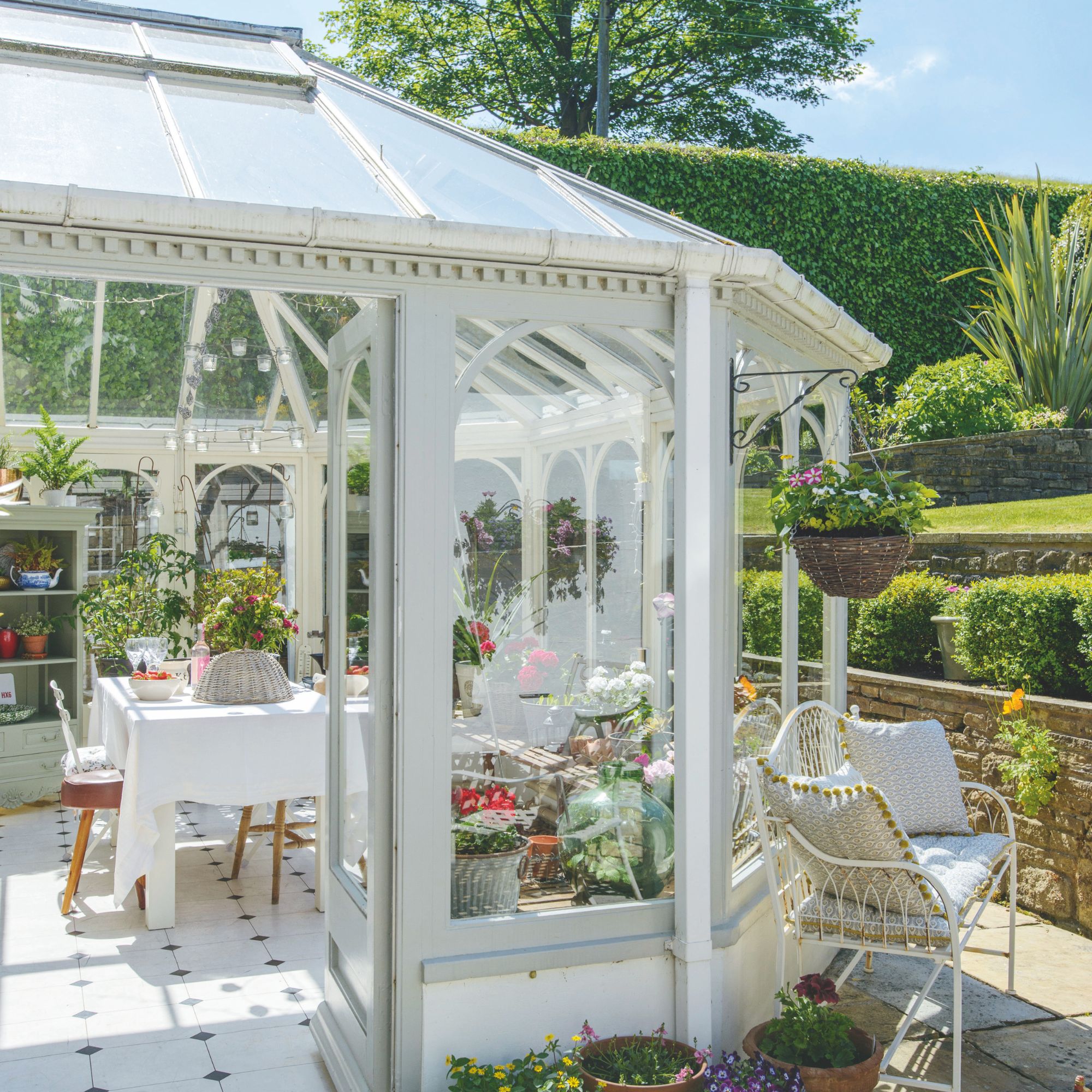
A conservatory roof tends to be either glass or polycarbonate, which is a lighter material. Polycarbonate is the cheapest option, but it may not be enough to prevent the new space from getting too hot in the summer and too chilly in the winter.
If you opt for a glass roof, you can specify glass with a solar control coating to help with temperature control. Self-cleaning glass is also a possibility, which can keep your conservatory looking its best, and reduce the amount of hands-on maintenance required.
For a conservatory that feels more like a room, you could go for a solid roof. These can be lightweight enough to be held by the walls, but insulative enough to avoid huge swings of temperature throughout the year.
A solid roof may also be required by building regulations if you want your conservatory to be open to the rest of your home, rather than separated by external doors.
7. Think about the glazing for your conservatory

Double glazing is advisable, as is low-emissivity glass. This has a metal coating that allows sunlight (short wave radiation) through but reflects heat from radiators (long wave radiation) back into the conservatory. Safety glazing is mandatory for windows and walls within 800 mm of the floor and must comply to BS6206.
You might also want to incorporate blinds into your design to help with temperature and sunlight control and to give privacy when you need it.
There is a wide choice: retractable pleated blinds, fabric roller blinds and Pinoleum blinds, which are made from strips of wood. The blinds need to be made and fitted by an expert to ensure that they are properly supported and it is also advisable to fit an operating system for high windows.
8. What kind of patio doors should you pick?
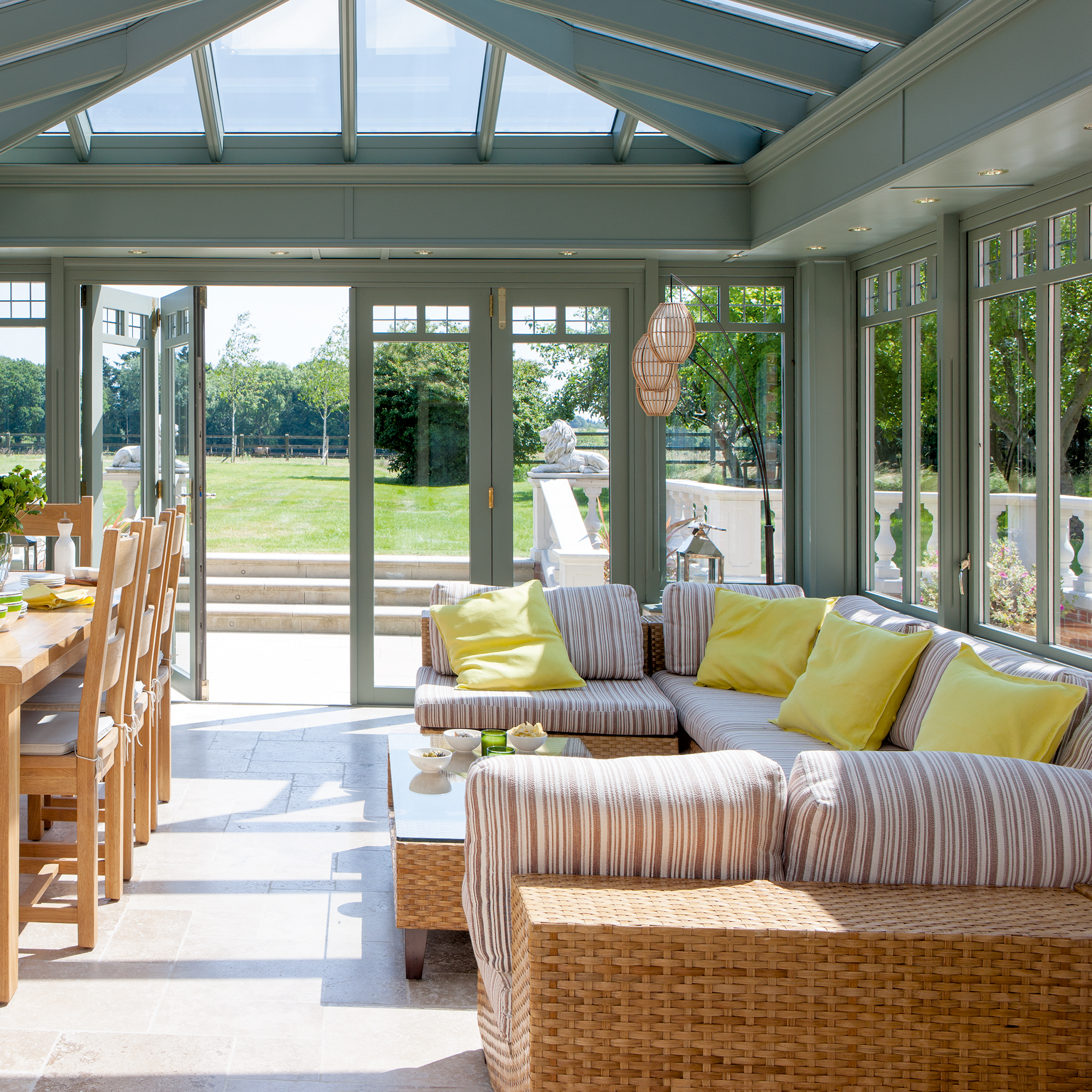
When it comes to patio doors for a conservatory, you might think French doors are your only option. However, it is possible to have bifold or sliding doors which can help maximise views and open up the space to the garden.
For a smaller space, a single door may be all that's required.
9. Consider how you will heat your conservatory
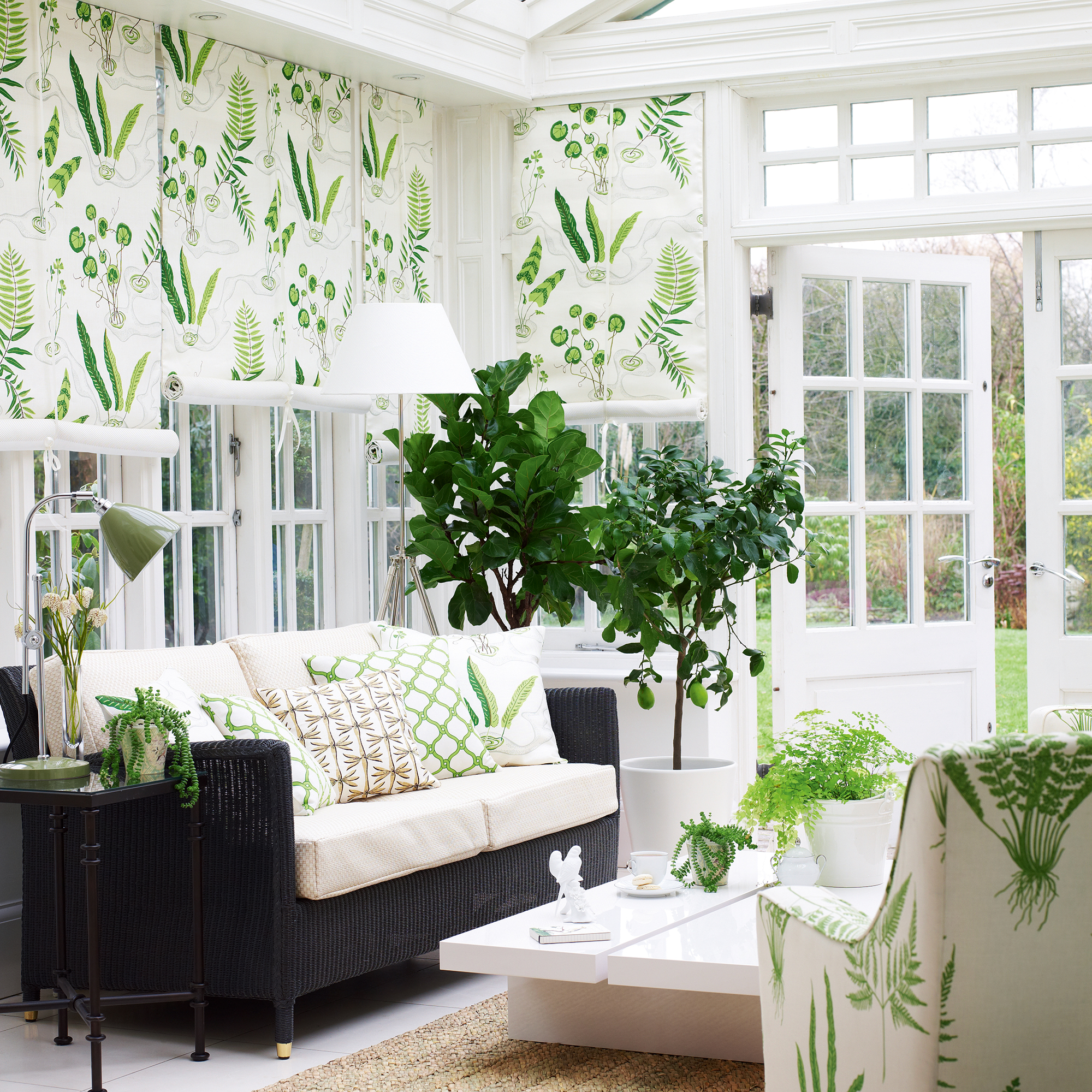
When it comes to heating a conservatory, you do have options, especially if they are installed when the conservatory is built, rather than retrofitted afterwards.
Electric underfloor heating can be the most unobtrusive option and leave you with flexibility when it comes to furniture placement. However this can be expensive to run, especially if energy prices soar again.
An air-to-air heat pump (essentially an air conditioning unit that can also provide heat) could be installed on the wall and used as and when required.
For an extra cosy feel, a woodburning stove could be installed in your conservatory, but you will need to install a flue or chimney.
Radiators are another option. However, it is advisable to operate the conservatory's heating on a separate circuit and thermostat to the main boiler.
You could also use one of the best electric heaters (which might be the best option for warming up an existing conservatory) to give bursts of heat, but this may not be the most cost-effective option for long periods of use.
10. Where to go for help
Any reputable conservatory company should be able to help you with the decisions listed above, and help you determine the right option for your specific project.
If you're not sure where to start, we've listed some useful contacts below.
- Amdega— Founded in 1874, Amdega produces bespoke conservatories, orangeries and summer houses in timber.
- Anglian Conservatories — Established supplier of purpose-built conservatories primarily in uPVC.
- Apropos — Precision-engineered garden rooms, conservatories and skylights in aluminium and glass.
- David Salisbury — Bespoke orangeries and conservatories.
- Hampton Conservatories — Bespoke mahogany conservatories from a company with 20 years' experience. From £30,000.
- Hillary's Blinds — Made-to-measure blinds for conservatories.
- Litespace by Ultraframe. Litespace is an innovative glass extension designed to create a light and bright space. Available with the option of a glass or polycarbonate
roof. From £1,999. - Malbrook Conservatories — Individually designed conservatories and orangeries in hardwood. From £15,000.
- Oak Leaf — Bespoke hardwood conservatories, garden rooms and orangeries.
- Prime Oak —Oak framed garages, conservatories and garden rooms. From £10,000 to £100,000.
- Richmond Oak — Individually designed conservatories and orangeries in naturally seasoned oak.
- Trombe Conservatories — Contemporary and traditional timber conservatories.
- Vale Garden Houses — Individually designed timber-framed orangeries, conservatories and pavilions. From £30,000 including installation.
- Westbury Garden Rooms — Bespoke conservatories and garden rooms, plus accessories and furnishings. From £23,000.
Once you've nailed the design of your conservatory structure, you'll need to start planning how it will look inside. Take inspiration from these conservatory interior ideas.

Sarah Handley has been Ideal Home’s Section Editor for Renovation since September 2024, following three years of looking after the site's home finance content. She has been a journalist since 2007 and has worked for a range of titles including Homebuilding & Renovating, Real Homes, GoodtoKnow, The Money Edit and more.
You must confirm your public display name before commenting
Please logout and then login again, you will then be prompted to enter your display name.
-
 My go-to Ninja coffee machine is on sale for Easter weekend
My go-to Ninja coffee machine is on sale for Easter weekendIt makes coffee shop quality achievable at home
By Molly Cleary
-
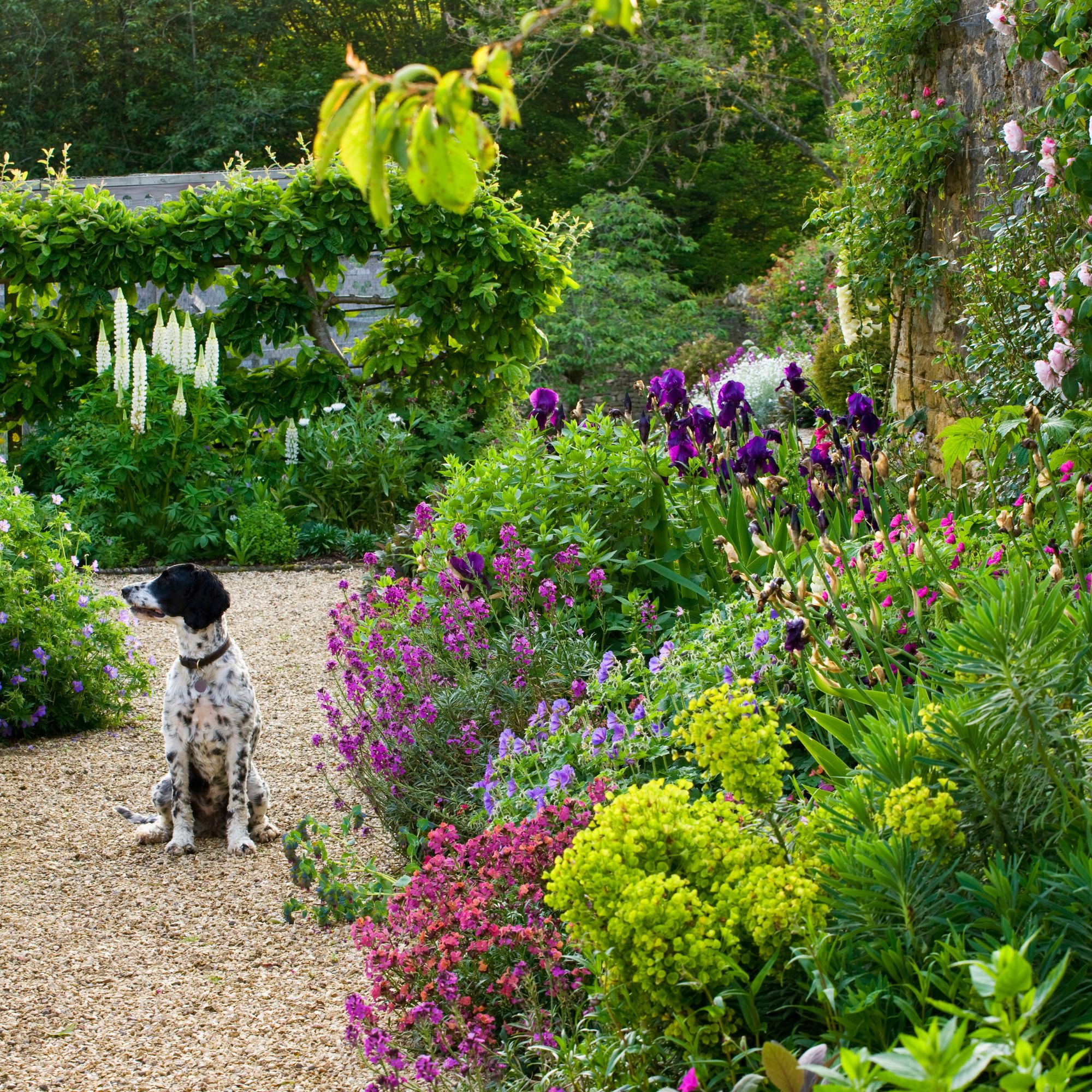 When to plant out annual flowering plants for vibrant, colourful garden borders – and give them the best start, according to experts
When to plant out annual flowering plants for vibrant, colourful garden borders – and give them the best start, according to expertsNot sure when to plant out annual flowering plants? We've got you covered...
By Kayleigh Dray
-
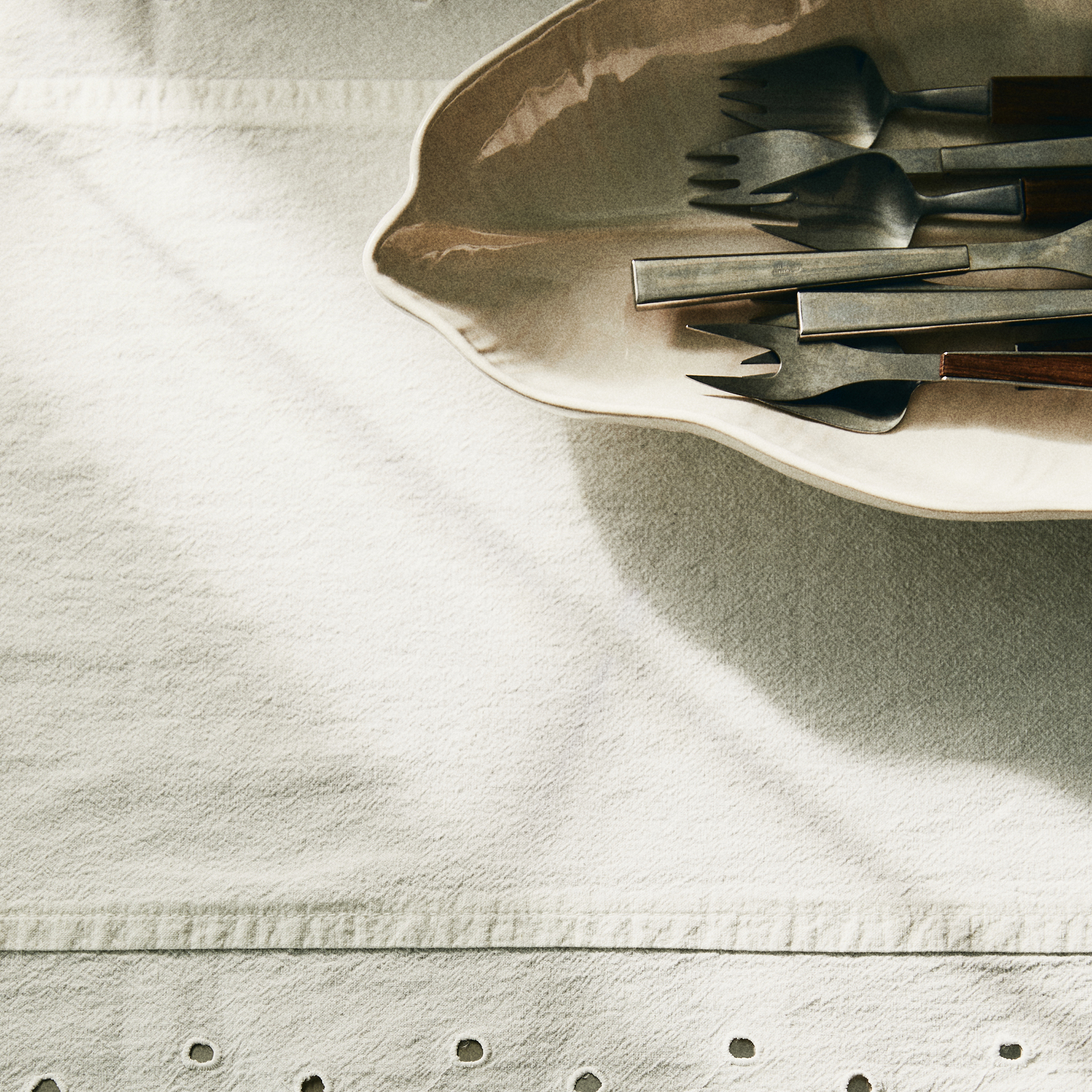 I'm a kitchen decor editor and didn't like this tableware trend - until I saw H&M Home's designer-look plates
I'm a kitchen decor editor and didn't like this tableware trend - until I saw H&M Home's designer-look platesThey made it easy to justify a new crockery set
By Holly Cockburn